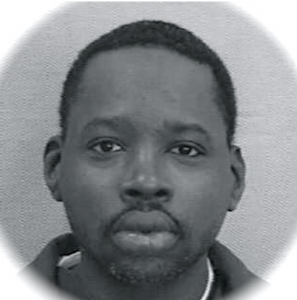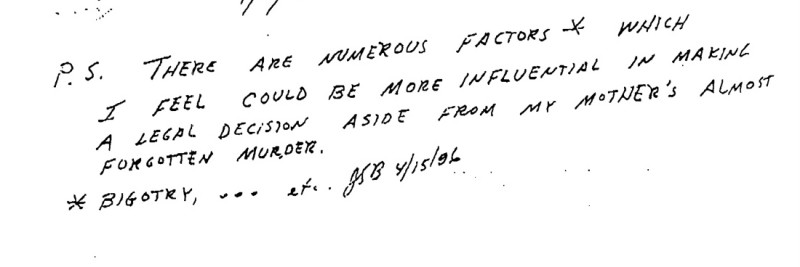During his 1992 trial, Kenneth Rouse attempted suicide by smashing his hands through a window and slashing his wrists. His mental disabilities were so severe that he was not fully capable of understanding his actions or participating in his defense. But the biggest strike against him was that he was a black man charged with killing a white woman, and at least one member of his all-white jury was openly racist.

Kenneth was sentenced to death for the 1991 robbery and murder of Hazel Broadway, a clerk at an Asheboro convenience store. After the trial, defense investigators assigned a law student to interview jurors in the case. One juror, Joseph Baynard, signed a sworn affidavit admitting that he had lied to earn his spot on the panel.
Baynard’s mother had been murdered by a black man 40 years earlier, under very similar circumstances to the crime Kenneth stood accused of. In the affidavit, Baynard said, “In particular, the pictures of Mrs. Broadway [the victim] at the murder scene reminded me of pictures of my mother after she had been murdered.” He said he decided not to mention his mother’s killing because he wanted to serve on the jury.
The juror also admitted in the affidavit that racial bigotry played a role in his decision to sentence a black man to death. Baynard said he believed that “blacks do not care about living as much as whites do” and that “black men rape white women so they can brag about it to their friends.” He referred to African-Americans with racist slurs. He said that one purpose of the death penalty is to rid the world of defective human beings and that Kenneth was “one step above a moron.”
This evidence has never been heard in court. The lower courts denied requests for a new trial, and the federal appeals court refused to hear it because Kenneth’s lawyers filed his petition one day after the deadline.
Four U.S. District Court judges disagreed with the decision not to hear this new evidence in Kenneth’s case. In her dissent, Judge Diana Gribbon Motz said, “I cannot join a decision that would allow the most minor procedural default imaginable to prohibit all evidentiary inquiry into such a serious constitutional claim.” Because of a single day, this important evidence of racial bias and improper jury conduct has never been examined in court — and the death sentence imposed by a biased jury still stands.

